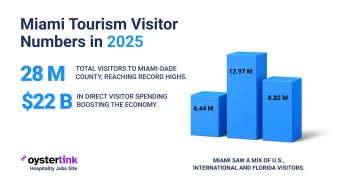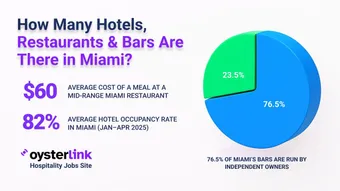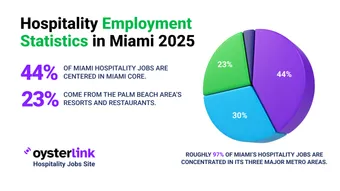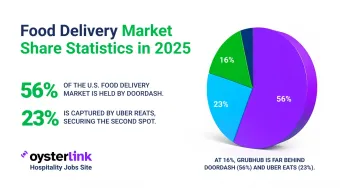Madison, Wisconsin Cost of Living: Quick Takeaways
- Housing Costs: The average rent for a one-bedroom apartment increased steadily to about $1,624 in 2025.
- Transportation Expenses: Public transit monthly passes cost $52.50 and fuel prices average $3.16 per gallon.
- Healthcare Costs: Employer-sponsored health insurance averages $140.33 per month; silver plans cost about $621.
- Income Levels: Median household income rose from $46,000 in 2010 to $76,983 in 2025.
Madison, Wisconsin offers a diverse urban environment with vibrant culture and economic activity.
This detailed breakdown explores the many facets of the cost of living in Madison for 2025, helping residents and newcomers understand expenses.
1. Housing Costs in Madison, Wisconsin
Housing costs represent a major part of monthly expenses in Madison. Here's how rental prices for a one-bedroom apartment have changed over time:
- 2010: Approximately $900
- 2015: Around $1,050
- 2020: Approximately $1,200
- 2024: Increased significantly to $1,624
- 2025: Estimated steady at $1,624
This steady rise highlights growing demand and market shifts in the Madison housing sector.
For hospitality employers looking for staff in growing cities, understanding housing costs can help tailor recruitment and retention strategies effectively. See our insights on restaurant staff hiring for helpful tips.
2. Homeownership and Real Estate Trends in Madison, Wisconsin
Buying a home in Madison has become more costly as property values have increased:
- 2010: Median home price was about $150,000
- 2015: Rose to $200,000
- 2020: Reached $300,000
- 2024: Stepped up sharply to $425,676
- 2025: Projected increase to $428,617
These increases reflect Madison's expanding economy and real estate demand.
3. Transportation Expenses in Madison, Wisconsin
Transportation costs are driven by public transit, fuel, and vehicle maintenance expenses:
- Public Transit: One-way fare averages $1.75; monthly passes cost about $52.50
- Fuel Costs: Around $3.16 per gallon as of 2025
- Vehicle Maintenance: Annual costs average approximately $1,200
Costs can vary greatly depending on commuting habits and travel frequency.
4. Utility Costs in Madison, Wisconsin
A typical 915 sq ft apartment's monthly utility expenses include:
- Electricity: $206.60
- Internet: $43.00
- Total Utilities: $249.60
These expenses may fluctuate based on usage and service providers.
5. Grocery and Food Expenses in Madison, Wisconsin
Monthly grocery costs are estimated at $253.64 per person. Dining out prices typically range from $15 for casual meals to $50 at mid-range restaurants.
Food expenses generally stay close to national averages.
Hospitality businesses in Madison might benefit from exploring real estate market trends to optimize location choices relative to these food and grocery expenses.
6. Healthcare Costs in Madison, Wisconsin
Healthcare spending includes premiums and out-of-pocket costs:
- Employer-Sponsored Insurance: Around $140.33 per month
- Silver Health Plans: Approximately $621 monthly
Healthcare rates in Madison exceed national averages by roughly 13%.
7. Educational Expenses in Madison, Wisconsin
Education costs vary by type:
- Public Schools: Funded by taxes, usually free to attend
- Private Schools: Average tuition about $10,000 per year
- In-State University: Tuition around $6,381 annually
Families should budget accordingly for educational needs.
8. Entertainment and Leisure in Madison, Wisconsin
Recreational costs include:
- Movie Tickets: Average price $15.18 each
- Gym Memberships: Monthly fees around $28.66
- Mid-Range Restaurant Meal: About $40 per meal
Annual entertainment expenses total approximately $2,482.
9. Taxes and Miscellaneous Fees in Madison, Wisconsin
Madison residents face the following tax rates:
- State Income Tax: Ranges from 3.54% to 7.65%
- Sales Tax: Approximately 5.5%
- Property Tax: Average effective rate is 1.68%
These taxes contribute substantially to overall living costs.
10. Childcare and Family Expenses in Madison, Wisconsin
Family-related expenses often include:
- Daycare: About $1,000 monthly
- After-School Programs: Around $300 monthly
- Extracurricular Activities: Estimated $150 monthly
Families should account for these in budgeting.
11. Clothing and Personal Care in Madison, Wisconsin
Monthly spending on clothing and personal care is:
- Clothing: Approximately $115
- Personal Care Products & Services: Around $54
Expenditures reflect moderate lifestyle preferences.
12. Insurance Costs in Madison, Wisconsin
Insurances impact budgets as follows:
- Health Insurance: $621 per month on average for silver plans
- Auto Insurance: About $2,364 annually
- Homeowners Insurance: Around $1,951 yearly
- Renters Insurance: Estimated $180 annually
Insurance costs vary by coverage and location.
13. Miscellaneous Expenses in Madison, Wisconsin
Other costs include:
- Entertainment: $2,482 annually
- Personal Care Services: $768 annually
- Miscellaneous Goods & Services: $707 annually
These expenses reflect lifestyle habits and preferences.
14. Income and Salaries in Madison, Wisconsin
Median household incomes have risen significantly over the years:
- 2010: $46,000
- 2015: $50,000
- 2020: $57,760
- 2023/2025: $76,983
Income growth supports increased living costs in Madison.
For those interested in in-demand positions or considering hospitality career moves in Madison, check out career resources such as how to become a bartender, a popular role in the hospitality sector.
15. Comparison with National Averages
Madison's cost of living compared to national figures shows:
- Overall Cost of Living: 5% above national average
- Housing: 6% higher
- Utilities: 1% lower
- Food: 1% cheaper
- Healthcare: 13% more expensive
- Transportation: 2% less
- Goods & Services: 8% higher
This perspective is valuable for planning finances in Madison.
Employers aiming to attract talent may want to review restaurant labor shortage insights to better understand the competitive hiring market in cities like Madison.
Our Methodology for Madison Cost of Living Figures
We base our data on credible sources like Numbeo, the Bureau of Labor Statistics, Zillow and government statistics. Some estimates fill gaps where precise data isn't accessible.
Madison Cost of Living: Conclusion
Madison's 2025 cost of living reflects moderate rises in housing, healthcare and overall expenses amid steady income growth.
Residents benefit from reasonable utilities, groceries and transportation costs compared with national averages.
Understanding these dynamics is key for those moving to or living in Madison, allowing for better financial planning and lifestyle management.
To support career development and hiring efforts in hospitality, consider exploring how to hire reliable kitchen staff and restaurant staff hiring guides to stay competitive in the market.




